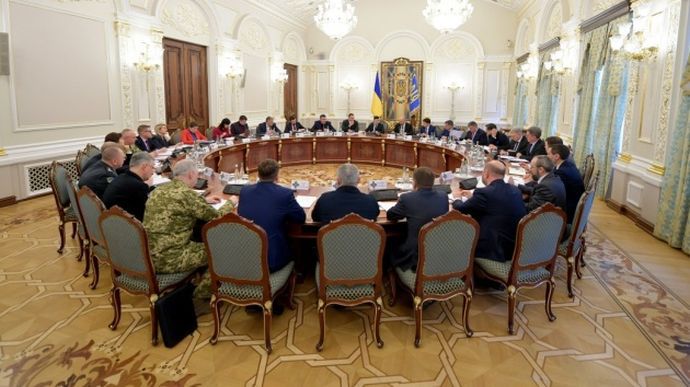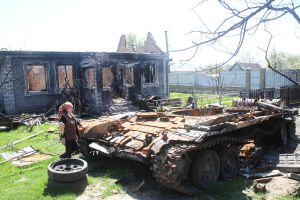“Threats to the national security of the state call for mandatory and strict decisions within the limits determined by the Constitution of Ukraine and the acting legislation. These threats must be eliminated. The society has to see such a state that will know only too well modern threats and be able to respond to them professionally and quickly”. This is how the Office of the President commented on the instruction given by Volodymyr Zelensky to promptly prepare an emergency session of the Council for National Security and Defense.
The session of the Council is set for this Friday, February 19. Some questions included in the agenda of the session will be discussed behind closed doors.
It was stressed that the decisions that are necessary to maintain national security at a proper level are long overdue. But they have been postponed for political reasons since 2019. The lack of a political will then has resulted in many a time bomb laid under the foundations of Ukrainian statehood. And now the situation necessitates systemic counteractions.
While commenting on the instruction of the head of Ukrainian state, political analysts pay special attention to the recent statement of Russian President Putin. Thus, he stated at a meeting with chief editors of the Russia media that “Moscow will not abandon Donbas no matter what”.
Last Thursday, the United States and the European Union made a joint statement accusing Russia of obstructing any possible solution to the settlement of the conflict in eastern Ukraine.
The statement was issued during a video conference of the UN Security Council convened on the initiative of the Kremlin to mark the sixth anniversary since Minsk Accords II had been signed. The document was agreed upon by leaders of Germany, France, Ukraine and Russia to end fighting in Donbas.
“Russia must immediately cease its aggression in eastern Ukraine and end its occupation of Crimea,” said US diplomat Rodney Hunter speaking on behalf of the Biden Administration. “We call on Russia to withdraw its forces from Ukraine, cease its support for its proxies and other armed groups, and implement all of the commitments it made under the Minsk agreements.”
Also, a joint declaration condemning ongoing instability in the Donetsk and Luhansk regions was issued by European members of the Security Council, as well as Germany, which along with France co-sponsored the Minsk accords between Moscow and Kyiv.
“By the use of force against the territorial integrity and sovereignty of Ukraine, Russia is clearly violating fundamental principles of international law,” the declaration states.
“We again call on the Russian Federation to immediately stop fueling the conflict by providing financial and military support to the armed formations it backs, and we remain deeply concerned about the presence of Russian military equipment and personnel in the non-government-controlled areas of Ukraine.”
Russia’s ambassador to the UN, Vassily Nebenzia, rejected the Western condemnation and accused Ukraine of not implementing Minsk accord measures, with backing from French and German “protectors.”
Analysts connect the preparations for the upcoming meeting of the National Security and Defense Council of Ukraine with the recent trip of Volodymyr Zelensky to Donbas in the company of G7 ambassadors. Analysts claim that apparently by organizing the joint trip, the Ukrainian leadership was trying to make the European Union officials change their attitudes toward the situation in Donbas, which continues worsening even further. Regrettably, many European politicians while commenting on the situation in Donbas express their “moderate optimism” and note “slow improvement” there.
The newspaper Voice of Ukraine






